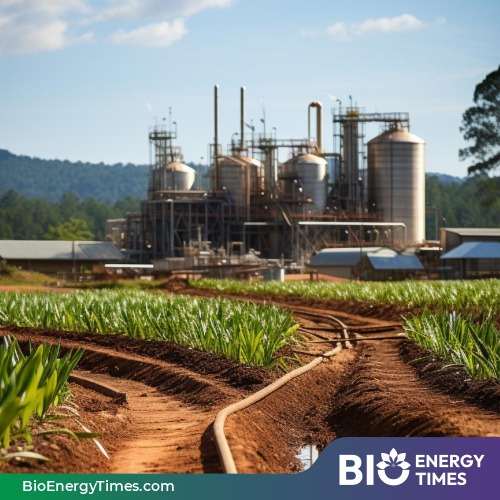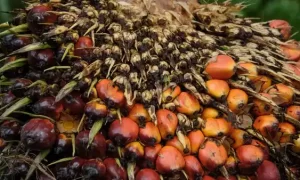Next-Generation Biofuels Market Set to Reach $60.14 Billion by 2031

The next-generation biofuels market, fueled by non-food feedstocks and advanced technologies, is projected to reach $60.14 billion by 2031, with a CAGR of 22.7%. These biofuels, offering sustainability and efficiency over traditional options, play a crucial role in decarbonizing hard-to-reduce sectors like aviation and heavy transportation, making them vital for a sustainable energy future.
The next-generation biofuels market, driven by non-food feedstocks and advanced technologies, is projected to reach $60.14 billion by 2031, with a CAGR of 22.7%.
InsightAce Analytic Pvt. Ltd. announces the release of a market assessment report on the “Next-Generation Biofuels Market”-, By Biofuel Type (Biodiesel, Biogas, Biobutanol, Others), By Process (Biochemical Process, Thermochemical Process), By Raw Material (Lignocellulose, Jatropha & Camelina, Algae, Others), By Application (Transportation, Power Generation, Others), Industry Trends, and Global Forecasts, 2024-2031 And Segment Revenue and Forecast To 2031.”
The Next-Generation Biofuels Market is valued at USD 12.01 Bn in 2023 and is estimated to reach over USD 60.14 billion by 2031, exhibiting a CAGR of 22.7% during the forecast period.
Next-generation biofuels, made from non-food feedstocks and cutting-edge technologies, mark a substantial advancement in the search for a more sustainable energy future. These fuels offer notable improvements over traditional biofuels in terms of sustainability, efficiency, and environmental impact.
Advances in technology are focused on reducing production costs and enhancing scalability, making next-generation biofuels increasingly competitive with conventional fossil fuels. As a result, they play a crucial role in decarbonizing the transportation industry, particularly in hard-to-decarbonize sectors such as heavy-duty transportation and aviation.
The widespread adoption of these biofuels will be key to achieving significant reductions in carbon emissions and supporting a more sustainable energy landscape.
For Instance, In Aug 2024, according to a new report from the USDA, renewable diesel production in the US has experienced remarkable growth, increasing from 40 million gallons in the 2010/11 marketing year to 2.3 billion gallons in the 2022/23 marketing year. This surge in production has led renewable diesel to surpass biodiesel for the first time.
Historically, biodiesel, produced from fats such as soybean oil, corn oil, yellow grease, or tallow, filled a significant portion of the biofuel mandate and required blending with traditional diesel. The shift towards renewable diesel, which is produced through hydroprocessing and can be used directly in existing diesel engines, reflects advancements in biofuel technology and a growing preference for fuels that offer higher energy content and greater compatibility.
List of Prominent Players in the Software-Defined Vehicle Market:
- Solazyme
- POET-DSM
- Chemtex Group
- Sundrop Fuels Inc.
- Enerkem
- Algenol Biofuels
- Abengoa S.A.
- Gevo
- Joule Unlimited, Inc.
- GranBio
- ExxonMobil Corporation
- Shell PLC
- Chevron Corporation
- Valero Energy Corporation
- ADM (Archer Daniels Midland Company)
- Cargill
- Clean Coal Technologies Inc.,
- Schneider Electric
- E3 Clean Technologies
- LanzaTech
- Accelergy
- Hygen
- Cortus
- Gasliner
- Ciris Energy
- General Electric
- Alstom
- Siemens
- Jaworski Energy Services
- ABB
- Tracxn Technologies Limited
Market Dynamics:
Drivers:
The market for next-generation biofuel technology is expected to be driven by two key factors throughout the forecast period: the rapidly increasing demand for reliable, clean power production technology and the global rate of industrialization. To enhance expenditure on environmental preservation, fuel efficiency, and technological innovation in both new and existing facilities, several supportive rules and regulations are also in place.
As a result, it is anticipated that this element will eventually accelerate market expansion. Moreover, the growing urbanization of developing nations would propel the expansion of industries.
Furthermore, the global increase in power consumption and demand as well as the move toward renewable energy sources boost market expansion.
Challenges:
Over the course of the projection period, it is expected that a lack of public awareness and inadequate financial and economic capacities would pose additional hurdles to the market’s growth. This element will also present a significant obstacle to the market expansion for next-generation biofuels.
The deployment of Next Generation Biofuels is mostly hindered by the high capital cost, which is further caused by the high upfront cost and other associated costs.
Regional Trends:
North America has the largest market share during the forecast period, due to the increasing demand for reliable and environmentally friendly power generation technologies, along with rising spending on environmental safety, is responsible for the market’s expansion. The growing demand for next-generation biofuels from North America is anticipated to have a major impact on the global industry, thanks to the United States, Canada, and other countries.
However, Asia Pacific region is rapidly growing region in biofuel production, particularly in countries like China and India, which are investing heavily in biofuel technology and infrastructure. The region is focused on both agricultural and algal biofuels, with efforts to enhance local production and meet increasing energy demands.
Recent Developments:
- In August 2023 – Cummins Inc. (NYSE: CMI) and Chevron U.S.A. Inc., announced the signing of a memorandum of understanding to take advantage of complementary positioning in the value chains for natural gas, hydrogen, and other lower carbon fuels. The agreement broadens the prior strategic partnership between the two businesses on renewable natural gas and hydrogen. It is anticipated to include additional liquid renewable fuels such biodiesel, renewable diesel, and blends of gasoline.
- In Sept 2023, ADM announced that to help satisfy the rapidly increasing demand for biofuels and other sustainably based products, they have signed a memorandum of understanding (MoU) to cooperate in expanding research and commercialization of low carbon-intensity next-generation oilseeds and enhanced varieties.
Segmentation of Next-Generation Biofuels Market.
Global Next-Generation Biofuels Market – By Biofuel Type
- Biodiesel
- Biogas
- Biobutanol
- Others
Global Next-Generation Biofuels Market – By Process
- Biochemical Process
- Thermochemical Process
Global Next-Generation Biofuels Market – By Raw Material
- Lignocellulose
- Jatropha & Camelina
- Algae
- Others
Global Next-Generation Biofuels Market – By Application
- Transportation
- Power Generation
- Others
Global Next-Generation Biofuels Market – By Region
North America-
- The US
- Canada
- Mexico
Europe-
- Germany
- The UK
- France
- Italy
- Spain
- Rest of Europe
Asia-Pacific-
- China
- Japan
- India
- South Korea
- Southeast Asia
- Rest of Asia Pacific
Latin America-
- Brazil
- Argentina
- Rest of Latin America
Middle East & Africa-
- GCC Countries
- South Africa
- Rest of the Middle East and Africa

















